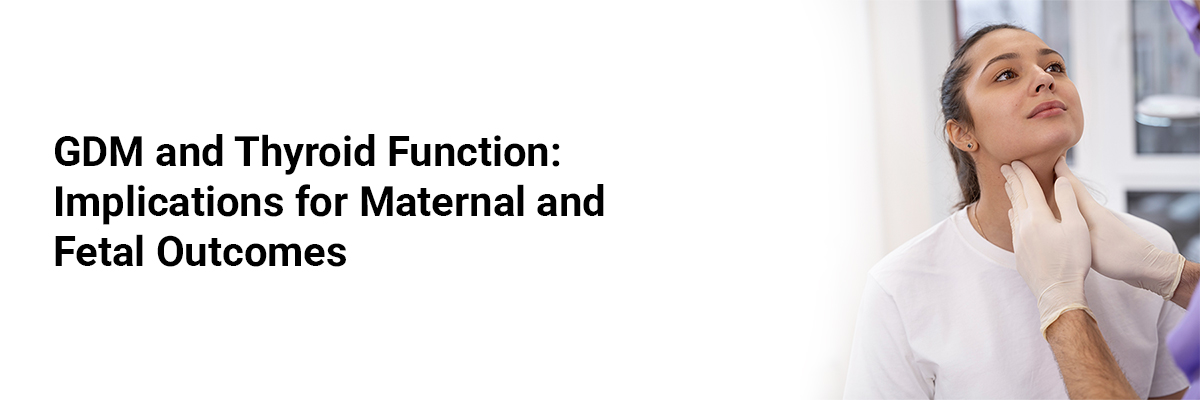
 IJCP Editorial Team
IJCP Editorial Team
GDM and Thyroid Function: Implications for Maternal and Fetal Outcomes
Gestational diabetes mellitus (GDM) and impaired glucose tolerance (IGT) represent significant global health challenges, particularly due to their impact on perinatal metabolic and endocrine health. Approaches to screening and diagnosis vary, with the United States favoring a two-step method, while the Diabetes in Pregnancy Study Group India (DIPSI) endorses a simplified 75-gram, two-hour fasting oral glucose tolerance test.
A recent prospective observational study conducted at Stanley Medical College Hospital, Chennai (April 2020–September 2021), investigated the maternal and fetal consequences of GDM. The study enrolled first-trimester pregnant women without pre-existing diabetes, who were screened using the DIPSI protocol.
Findings highlighted the adverse effects of GDM on both mothers and fetuses. The study underscored the critical importance of early diagnosis and timely intervention to minimize both immediate and long-term health risks. Birth weights between 2.5 and 3.5 kg were observed in both GDM and IGT groups, indicating the necessity of close monitoring for all women with glucose intolerance. Notably, maternal hyperglycemia––even in its milder forms––was associated with suppressed thyroid function in the fetus, which may contribute to altered fetal growth patterns and macrosomia.
Based on these findings, the authors recommend routine assessment of thyroid function in both mother and fetus, along with counseling on postpartum blood glucose monitoring at the time of hospital discharge. The study reinforces the need for an integrated and vigilant approach to managing GDM and IGT to enhance maternal and neonatal outcomes.
Reference:
Vijayam B, Manoranjani K, Anandhi A, Shanmugam A, Balaji T, Balaji MS, Veerasamy S, Ganesan VK. Indian J Obstet Gynecol Res. 2023;10(4):451–455.

IJCP Editorial Team
Comprising seasoned professionals and experts from the medical field, the IJCP editorial team is dedicated to delivering timely and accurate content and thriving to provide attention-grabbing information for the readers. What sets them apart are their diverse expertise, spanning academia, research, and clinical practice, and their dedication to upholding the highest standards of quality and integrity. With a wealth of experience and a commitment to excellence, the IJCP editorial team strives to provide valuable perspectives, the latest trends, and in-depth analyses across various medical domains, all in a way that keeps you interested and engaged.





















Please login to comment on this article